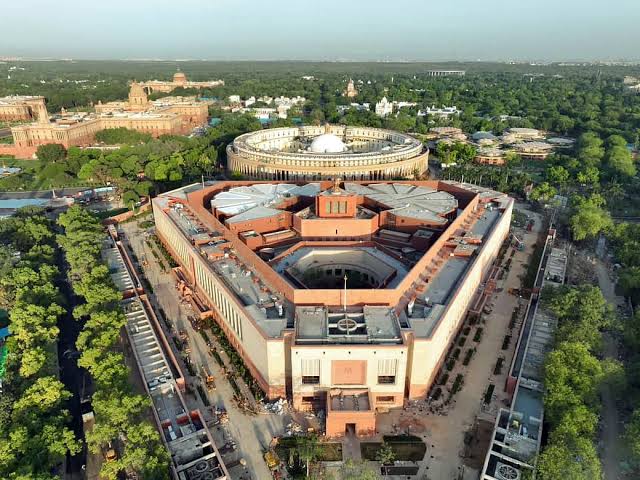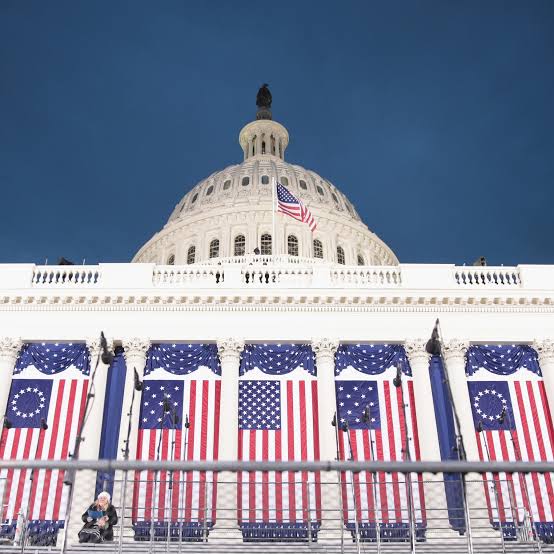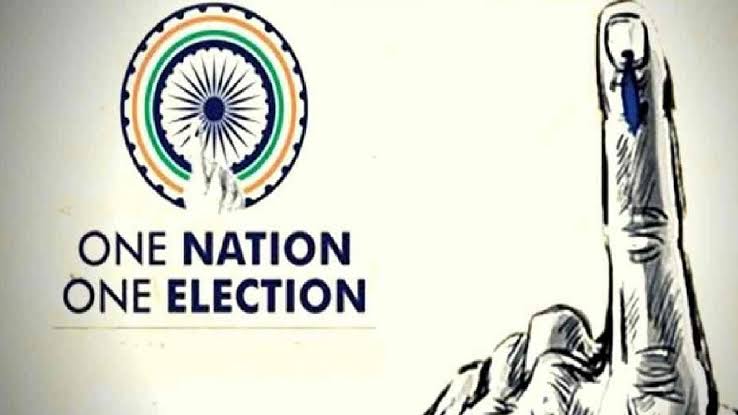Table of Contents
The Parliamentary Affairs Minister of India, Shri Pralhad Joshi announced on his handle on X (formerly Twitter) “Special Session of Parliament (13th Session of 17th Lok Sabha and 261st Session of Rajya Sabha) is being called from 18th to 22nd September having 5 sittings. Amid Amrit Kaal looking forward to have fruitful discussions and debate in Parliament.” However, no further details regarding the agenda were provided. This led to wild speculation among political parties, journalists, and political pundits regarding the purpose of this special session. But before we dwell on the significance of the government’s decision to call a special session of the Parliament, let’s understand how a parliament session actually is convened and its constitutional provisions.
The institution of the Parliament in India, consisting of the Lok Sabha (House of the People) and the Rajya Sabha (Council of States), is the foundation of the country’s democratic framework. It serves as a platform for deliberation, legislation, and representation of the people’s interests. While the regular sessions of the Parliament are well-established over time by convention, the provision for special sessions holds significant importance, offering a mechanism to address urgent matters that require immediate attention. In this essay, we will explore the constitutional provisions, historical evolution, and the rationale behind special sessions of the Parliament in India.
Constitutional Provisions of Special Session of Parliament
The provision for ‘sessions’ of the Parliament is enshrined in the Constitution of India, under Article 85, which pertains to the “Sessions of Parliament, prorogation, and dissolution.” It stipulates that –
“(1) The President shall from time to time summon each House of Parliament to meet at such time and place as he thinks fit, but six months shall not intervene between its last sitting in one session and the date appointed for its first sitting in the next session.
(2) The President may from time to time—
(a) prorogue the Houses or either House;
(b) dissolve the House of the People.”
In Practice, however, the decision to convene a session is taken by the Prime Minister, in consultation with his Cabinet colleagues and the Speaker. Notification of convening the house is issued under the President’s signature in the Official Gazette. (Indian Constitutional Law, M P Jain, Eighth edition).
Each session should meet with a time gap of not more than six months. The significance of this provision is that the Parliament must meet for two sessions. The Constitution doesn’t stipulate any nomenclature, schedule, or duration of such sessions. However, as per the convention, the Indian Parliament meets three times a year. The sessions of the Parliament are called Budget session, Monsson session, and Winter session. Any other session called to discuss a special matter is called the Special Session of the Parliament.
While the President can summon a special session, the Constitution does not provide a specific definition or criteria for what constitutes a “special” situation. This flexibility allows the government to call for a special session when there is a pressing need, such as addressing an emergency, discussing crucial issues, or passing urgent legislation.
Historical Evolution
The concept of special sessions of the Parliament can be traced back to the pre-independence era, in the provisions made under the Government of India Act, 1935 (Sec 19.2.a and Sec 62.2.a). However, it was after independence that this practice gained prominence within the Indian parliamentary system.
Since 1952 special sessions of the Parliament have been convened to discuss various critical matters, such as economic crises, constitutional amendments, and national security concerns. For instance, in 1971, a special session was held to address the Indo-Pak War and the resulting refugee crisis. Another notable example was the 1999 special session to discuss the Kargil conflict. These instances illustrate that special sessions have been utilized as a means to engage the Parliament swiftly in times of national importance.
Reasons for Holding Special Session of Parliament
The rationale behind convening special sessions of the Parliament can be categorized into several key reasons:
Urgent Legislation: Special sessions allow the government to introduce and pass legislation that requires immediate attention. This could include laws related to national security, natural disasters, public health emergencies, and economic crises.
Emergencies and Crises: In times of emergencies, such as armed conflicts or natural disasters, special sessions enable the government to brief the Parliament on the situation, seek its support, and allocate resources if necessary.
Critical Debates: Complex and significant issues that demand comprehensive debates and discussions can be addressed during special sessions. These might include constitutional amendments, foreign policy matters, and issues of societal importance.
Representation and Accountability: Special sessions provide a platform for elected representatives to voice their concerns, raise questions, and hold the government accountable for its actions during critical situations.
National Unity: Convening special sessions can also serve as a gesture of national unity and solidarity, rallying representatives across party lines to address challenges faced by the nation.
Why is the Government calling a special session of the Parliament?
The announcement made by the Parliamentary Affairs Minister, Shri Pralhad Joshi, has surprised the political leaders and pundits across the spectrum. There are many speculations as to the reason for calling a special session of the Parliament from the 18th to the 22nd of September 2023. It’s worth mentioning that the Monsoon session of Parliament ended on August 11, 2023. Here, we’ll share our thoughts on why the government might have called this session –
- The Uniform Civil Code – Bringing the Uniform Civil Code (UCC) into effect is the final significant promise made by the BJP since its beginning that still needs attention. The matters of Ram Janmbhumi have been resolved in court, and Article 370 has been abolished. So, it’s possible that they might focus on implementing this legislation.
- One Nation One Election – Prime Minister Narendra Modi began discussing the idea of holding elections for both Lok Sabha and state assemblies at the same time. Elections in India use a lot of resources, both in terms of administration and money. Plus, a large number of troops are needed to ensure a peaceful and fair election. Having a single election process could be a clear advantage. The government has set up a committee led by former President of India, Shri Ram Nath Kovind, to study this idea. They will talk to different groups to get their input. Some people are speculating that during the special Parliament session, the government might propose a new law to make ‘one nation one election’ a reality.
- The celebration of India’s Landing on the Moon and the outcome of India’s Presidency of G20 may be other reasons for a special session of the Parliament.
- The Women’s Reservation Bill is a piece of legislation that has been waiting for approval for a long time. Previous governments couldn’t pass it because some political parties opposed it. This might be one of the laws that the government considers bringing up during the special session
Epilogue
As evident, special session of the Parliament in India are a vital instrument within the democratic system, enabling the government to address urgent matters, seek legislative approval, and engage in critical debates. The constitutional provisions, historical evolution, and reasons for convening special sessions highlight their significance in ensuring the responsiveness and adaptability of the parliamentary process to the evolving needs of the nation. As India continues to face various challenges in the contemporary world, the institution of special sessions remains a crucial mechanism for effective governance and democratic participation.
Appendix
Here is a comprehensive tabular representation of special sessions of Parliament:
| Year | Party/Coalition in Power | Purpose of Special Session |
| 1952 | Congress | Consideration of the First Five-Year Plan |
| 1961 | Congress | Border tensions with China |
| 1962 | Congress | Addressing the Sino-Indian conflict |
| 1971 | Congress | Indo-Pak War and refugee crisis |
| 1975 | Congress | Constitutional crisis and imposition of Emergency |
| 1991 | Congress | Economic crisis and liberalization |
| 1999 | BJP-led NDA | Discussing the Kargil conflict |
| 2002 | BJP-led NDA | Gujarat riots aftermath and communal harmony |
| 2008 | UPA | Confidence vote after Left Front withdrew support |
| 2013 | UPA | Passing the Food Security Bill |
| 2019 | BJP | Repealing Article 370 and bifurcation of Jammu and Kashmir |
| 2020 | BJP | COVID-19 pandemic and related challenges |
Note Please note that this table includes notable instances of special sessions, but there may have been additional special sessions held for various reasons.






One thought on “Special Session of Parliament in India – Cracking the Code – Constitution, History, and Purpose”